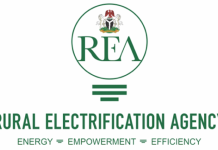In the secondary market, demand for Nigerian government bonds increased in response to rising yields in the debt market, indicating that supply has tightened.
Buying interest, on the other hand, brought the average yield lower, owing to a slowing in inflation and expectations that the monetary authority will keep rates tight at its next meeting.
Across the benchmark curve, the average yield rose somewhat at the short end (+1 bp) due to profit-taking in the APR-2029 (+3 bps) bond.
On the other hand, the yield curve contracted in the mid (-34bps) and long (-7bps) sectors due to investor interest in the JUN-2033 (-119bps) and APR-2049 (-45bps) bonds, respectively.
Fixed income analysts at CardinalStone Limited stated that investors interests in the bond space were skewed to the mid-segment (-40bps) and the long-end (-7bps) of the curve.
As a result, the prices of local bond trading in the over-the-counter market increased, and the average yield declined by 14 basis points on the day to 19.24%.
In the Nigerian sovereign Eurobonds market, upbeat investor sentiment across the yield curve led to a 0.05% decline in the average yield, bringing it to 9.81%, Cowry Asset Limited told investors in a note.












